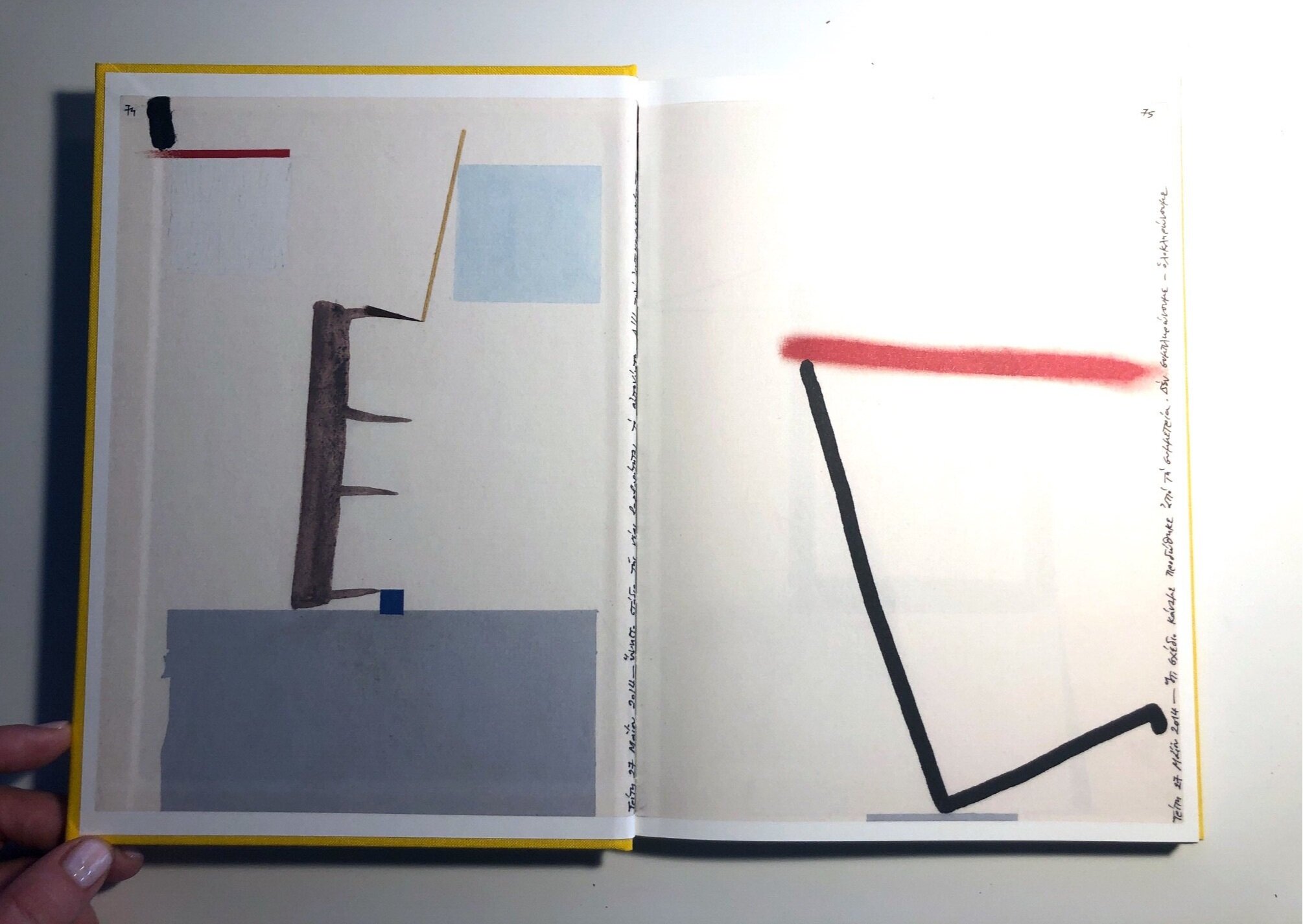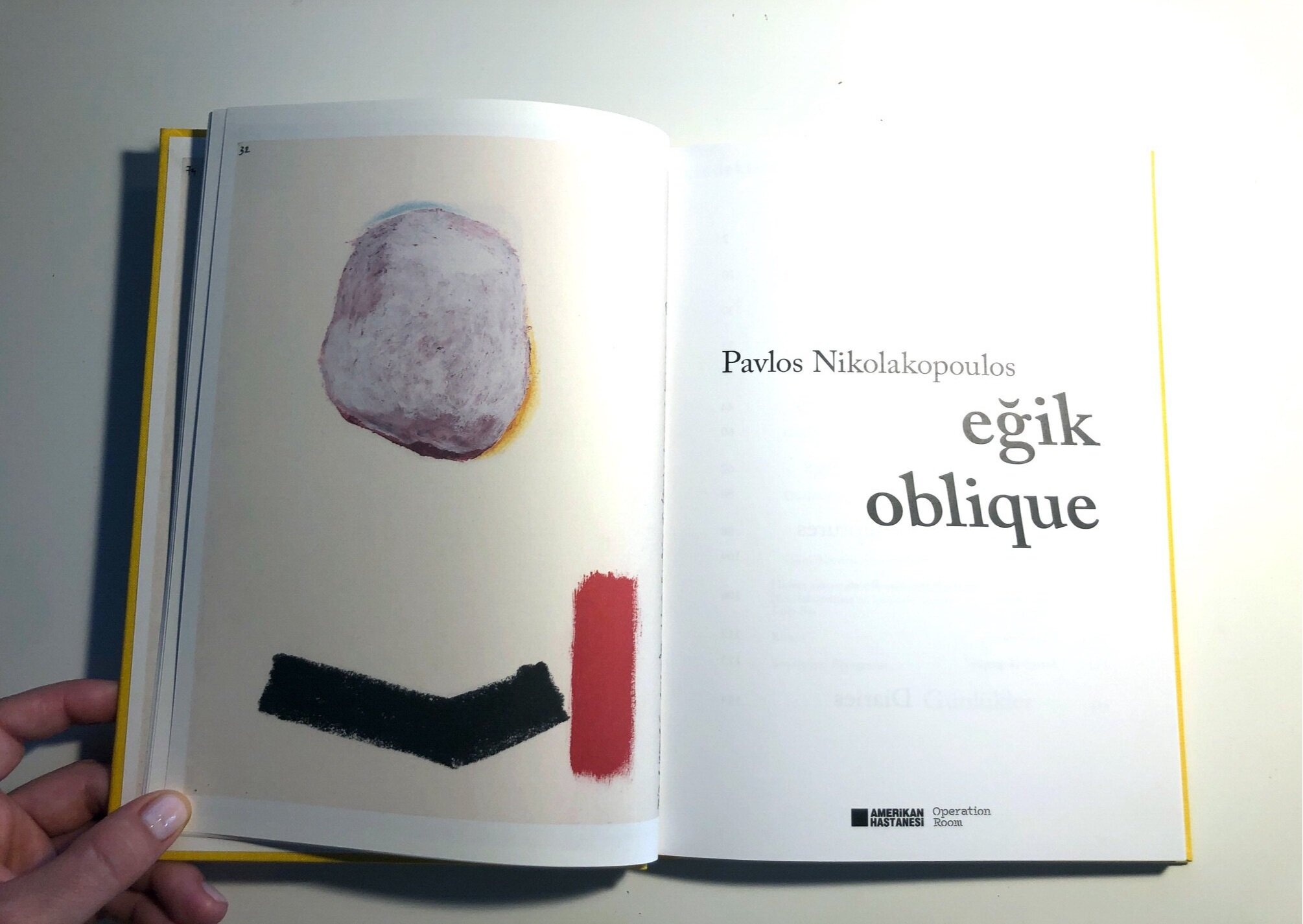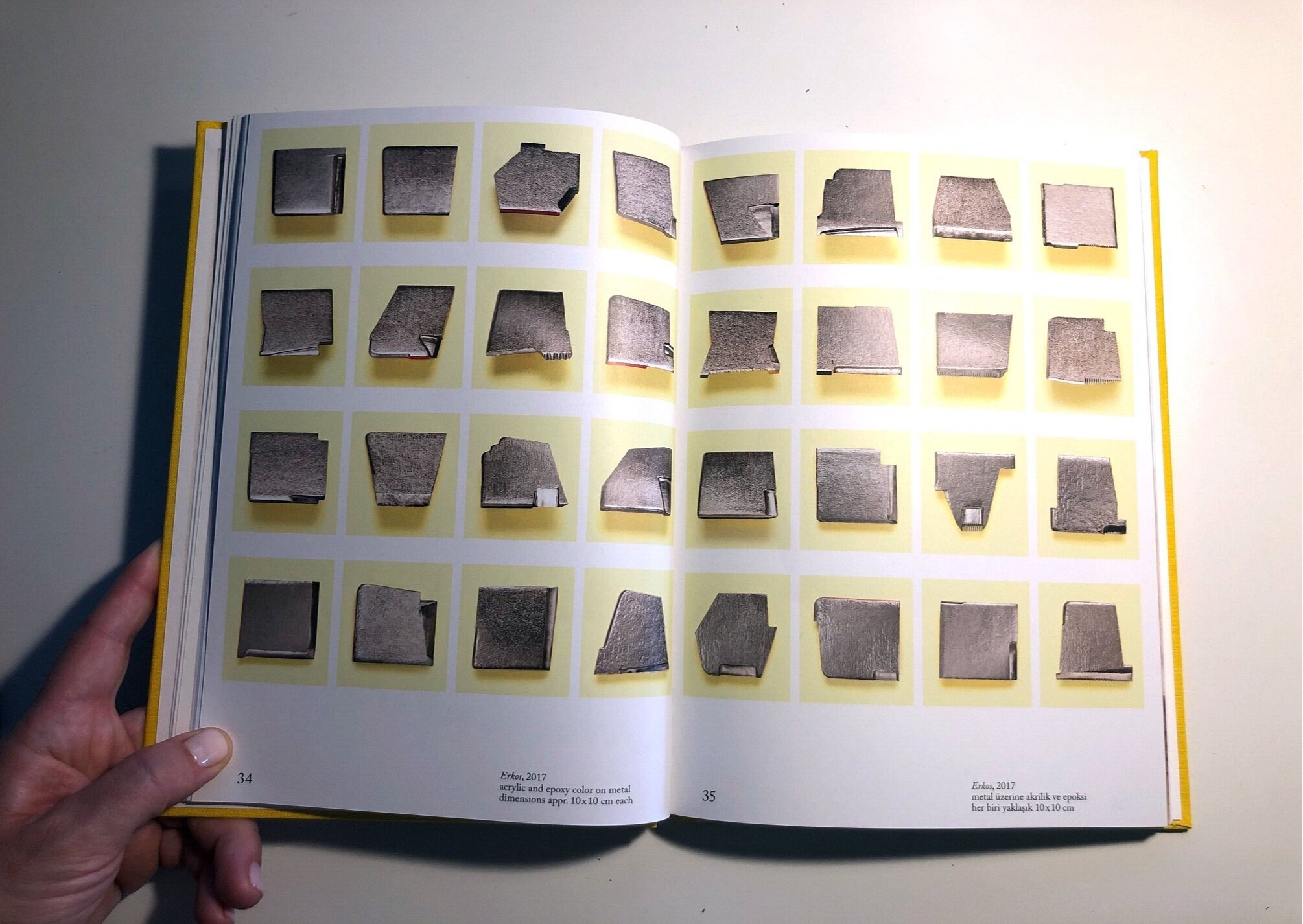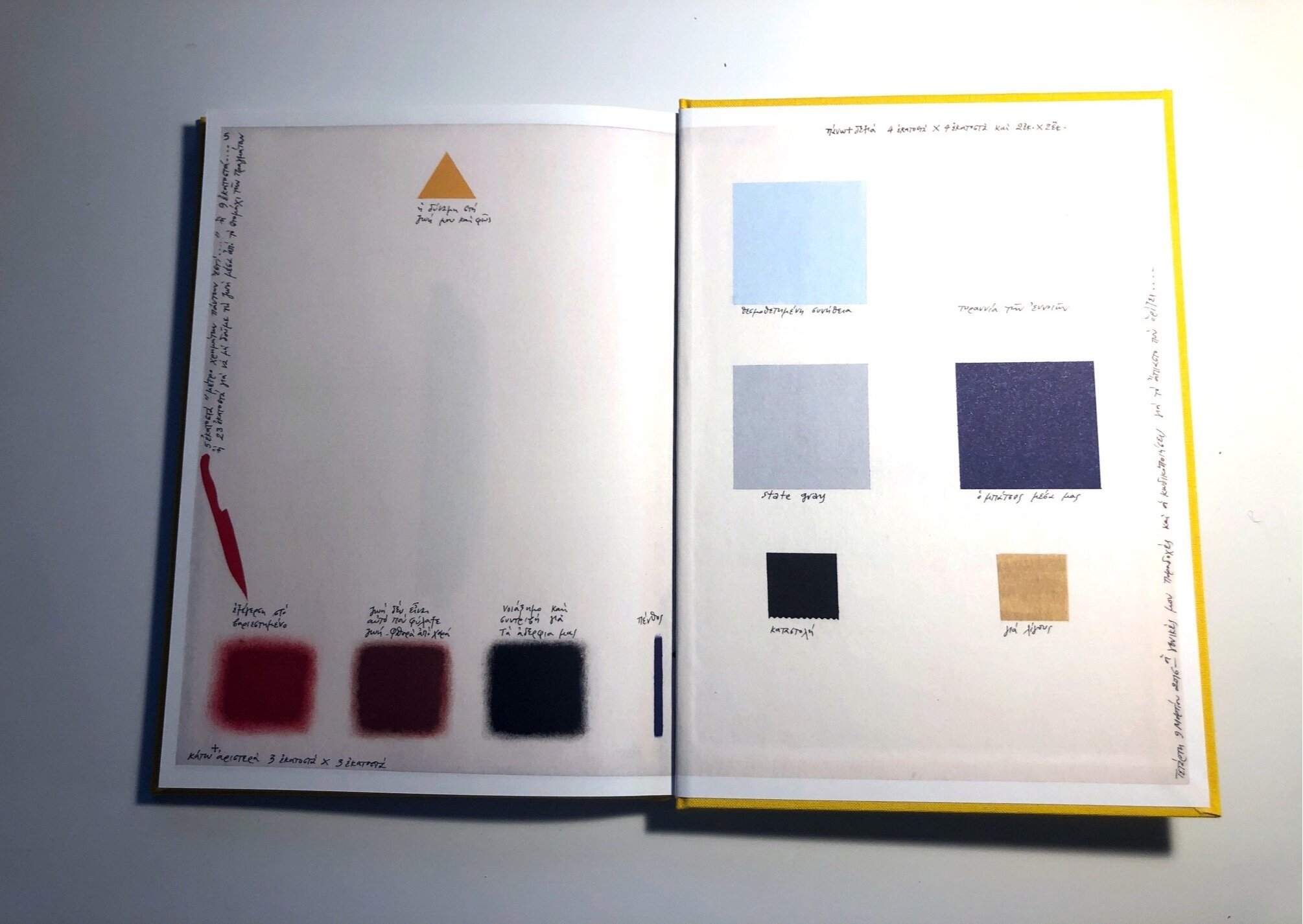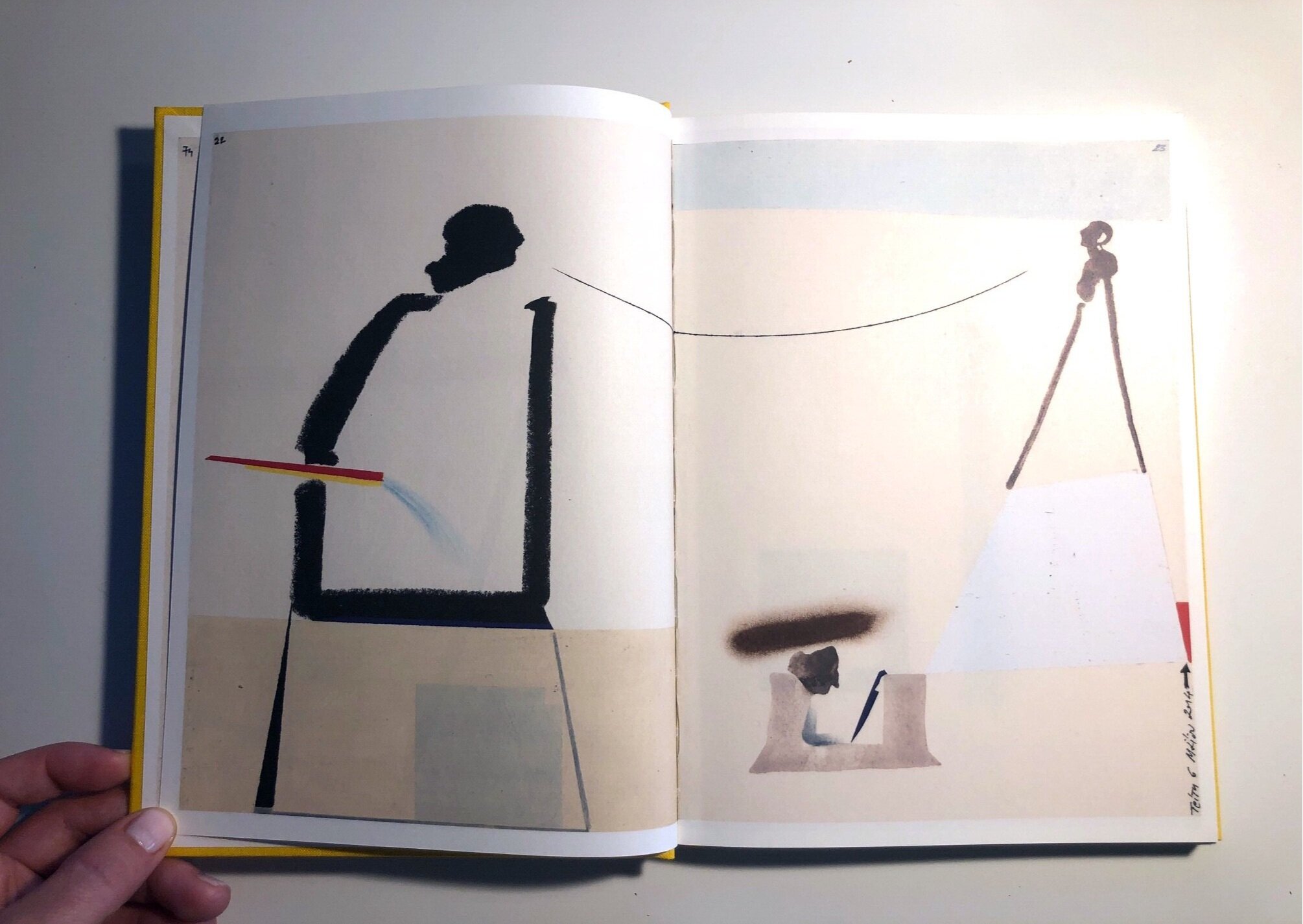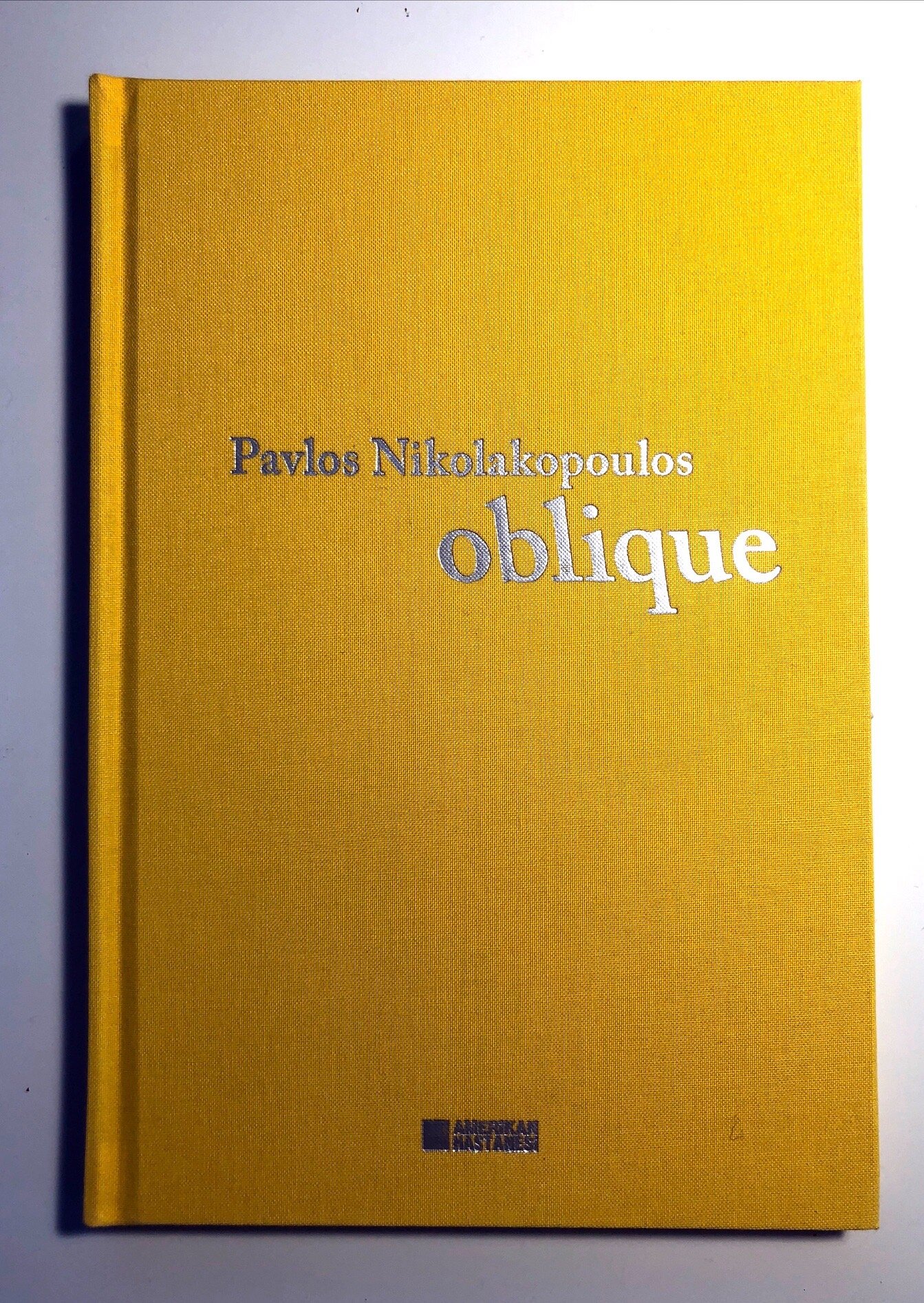PUBLICATIONS
TEXTS
Pavlos Nikolakopoulos : le Logos & la Nuit
Pavlos Nikolakopoulos est un artiste de la renaissance, un artiste de la pensée et des mots, un artiste dont la vie intérieure est aussi riche que la vie sociale. Plusieurs étapes marquent cette vie d’artiste déjà longue. D’abord un foisonnement de mots, dans ses carnets qui sont autant des œuvres d’art que de pensée, un foisonnement de dessins, de conflits intérieurs, une richesse des formes, une charge de messages, politiques comme intimes. Puis, en parallèle avec la crise grecque, la disparition progressive des messages lisibles, pour laisser la place à l’essentiel : un vide apparent. Les sculptures de métal comme les dessins évoluent vers une mise en abyme des sensations et se confrontent à une esthétique philosophique, contemplative et physique.
Memory is an action that is pending
by Tilemachos Doufexis Antonopoulos
Memory is in the in its savage state. It dives into the unconscious and recovers what is repressed; what is hidden; what was defeated and had to sink into oblivion. It storms heaven and, just like when the sun rises, reveals something unknown though yet familiar. The hospitality of adventure; the redemption of the destination, the redemption from the destination; the demand of for some future, of for a geometry of the intangible. The sSavage memory toys with the impossible, mocks the bourgeois spirit of order, the linear time, the straight line. Memory in the savage state desecrates the monument, mocks the narcissistic anxiety of the present moment, throws the myth of the eternity and the eternity of myth into despair. The savage state of the savage memory is schizophrenic.
Some Notes
by Lilly Wei
Art today is exponentially more complicated, often with more moving parts and accompanied by lengthier, explicative texts. Art, of course, has always been multidimensional, but contemporary practitioners have increasingly expanded the field in which it operates, incorporating multiple disciplines and a wide range of materials, and subjects of every description, including the highly controversial and the once prohibited. And often, they have sought out less orthodox venues to show these works.
Apparent Void
by Barbara Polla
May 17, 2017
Pavlos Nikolakopoulos, committed artist as he is, has long worked on what he calls “the dense narration”. These highly charged works are packed full of information. “I deliberately created the confusion,” he said, “using political theories, slogans, songs of the street, to help the observers to focus their attention on the conflicts of which my images illuminate the magnitude.” This was at the very beginning of the year 2010.
But in 2012, while what Nikolakopoulos calls “the terrorism of destruction” flourishes, the artist began to create empty spaces in order to allow for greater contemplation, while pursuing the same train of thought. And in 2015, while the material void entrenches Greece, opening completely new areas, Nikolakopoulos got to working on metal.
Vide apparent : le cas grec
by Barbara Polla & Chiara Bertini
roots & routes | Year VII, n.26, September-December 2017
Pavlos Nikolakopoulos, artiste engagé s’il en est, a longtemps travaillé dans ce qu’il appelle « la narration dense ». Des œuvres très chargées, surchargées. « Je créais délibérément la confusion, dit-il, en utilisant des théories politiques, des citations littéraires perverses, des slogans, des chansons de la rue pour amener les spectateurs à porter un regard aigu sur les conflits dont j’éclaire l’ampleur par les interconnexion que je crée avec mes images. » C’était au tout début des années 2010.
Neighbours
by Paolo Colombo
Istanbul Modern, 2014
One of the trademarks of Pavlos Nikolakopoulos's oeuvre has been a keen attention to the very small within the larger scale. His work Overlook is a paradigm of his practice; it is a commanding work composed of 270 individual drawings, all together composing a yet larger image. For the sake of simplicity, the large drawing is made up by the continuous and flowing details of the 270 initial drawings, morphing into the image of a tussle. Overlook forces the viewer to a double take: literally to look twice, applying a different focus to see both the battle and the smaller narratives that take place in the tassels of Nikolakopoulos's mosaic.
